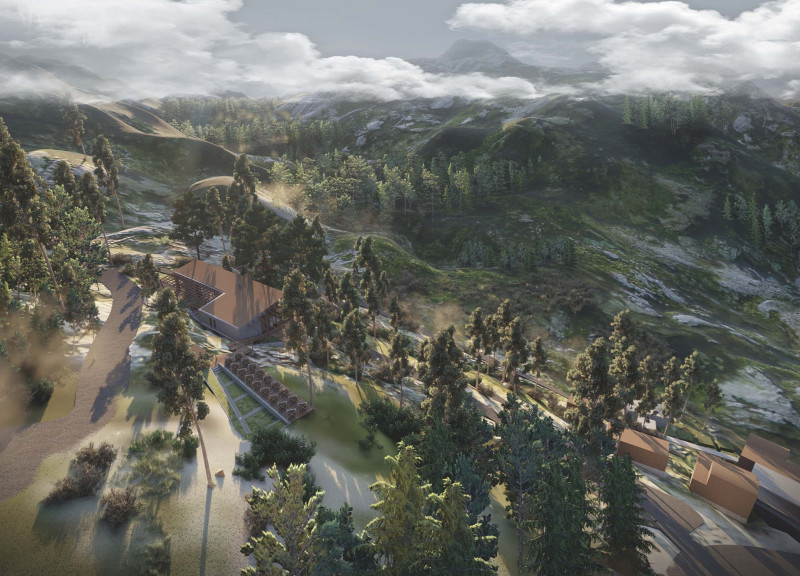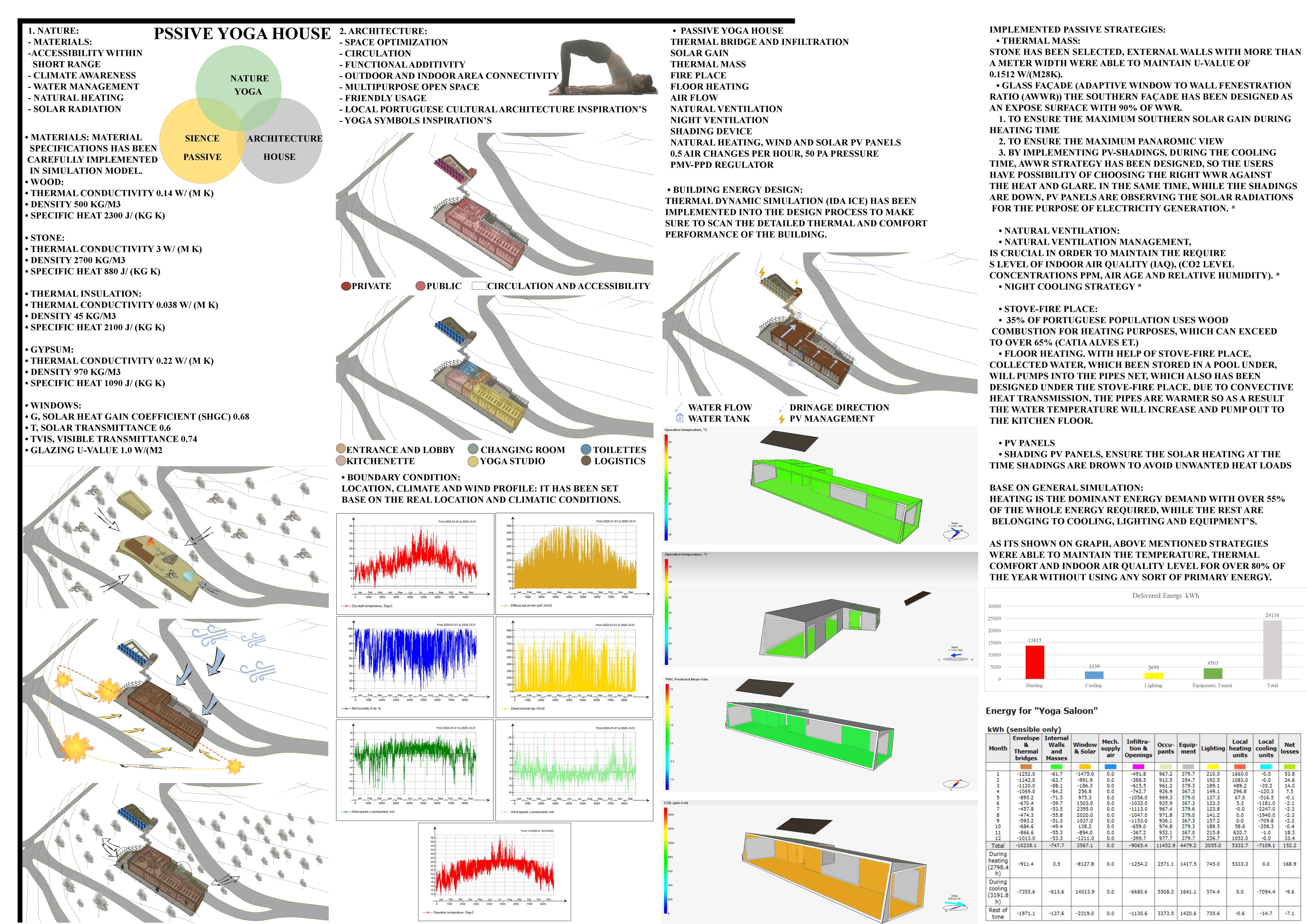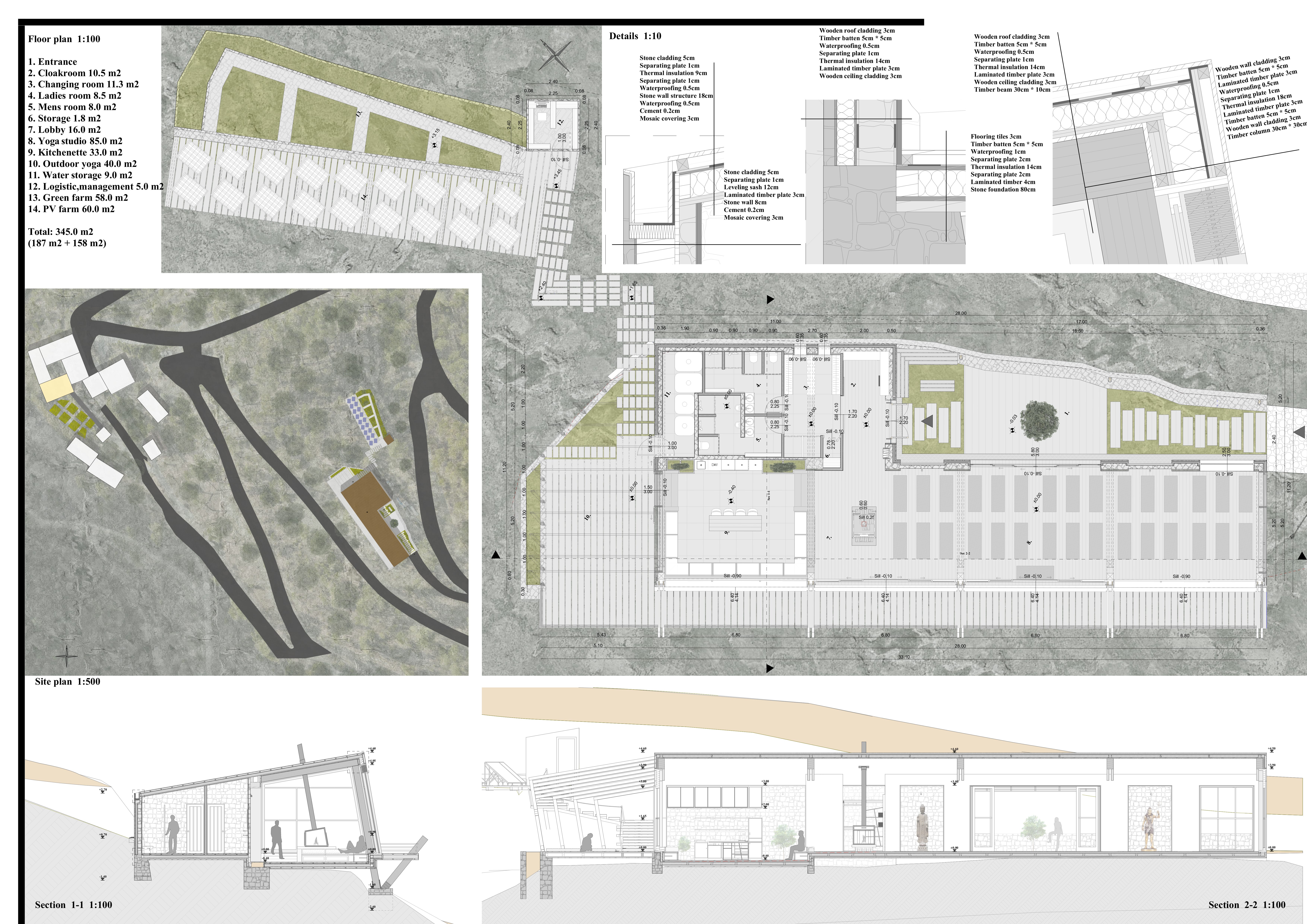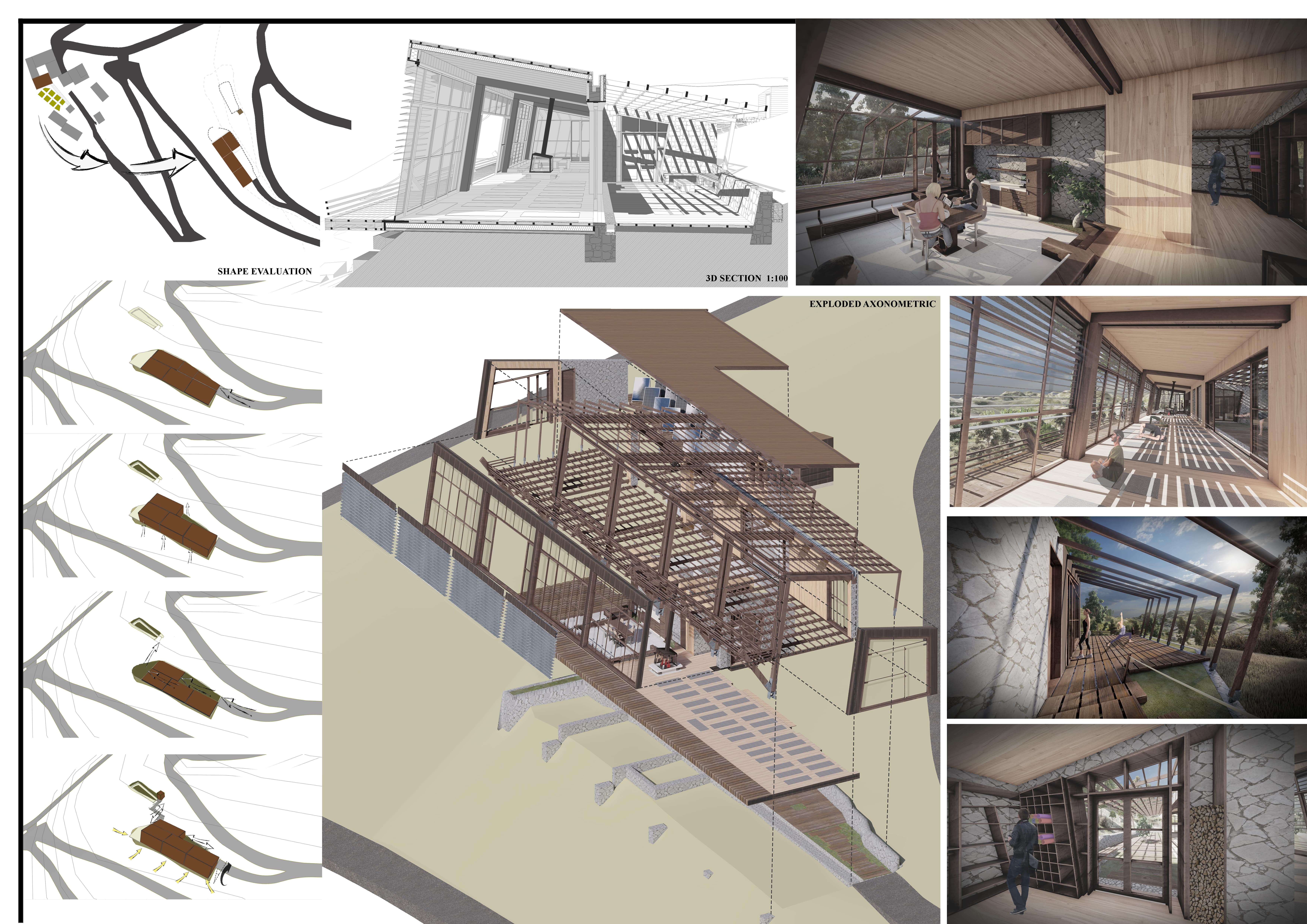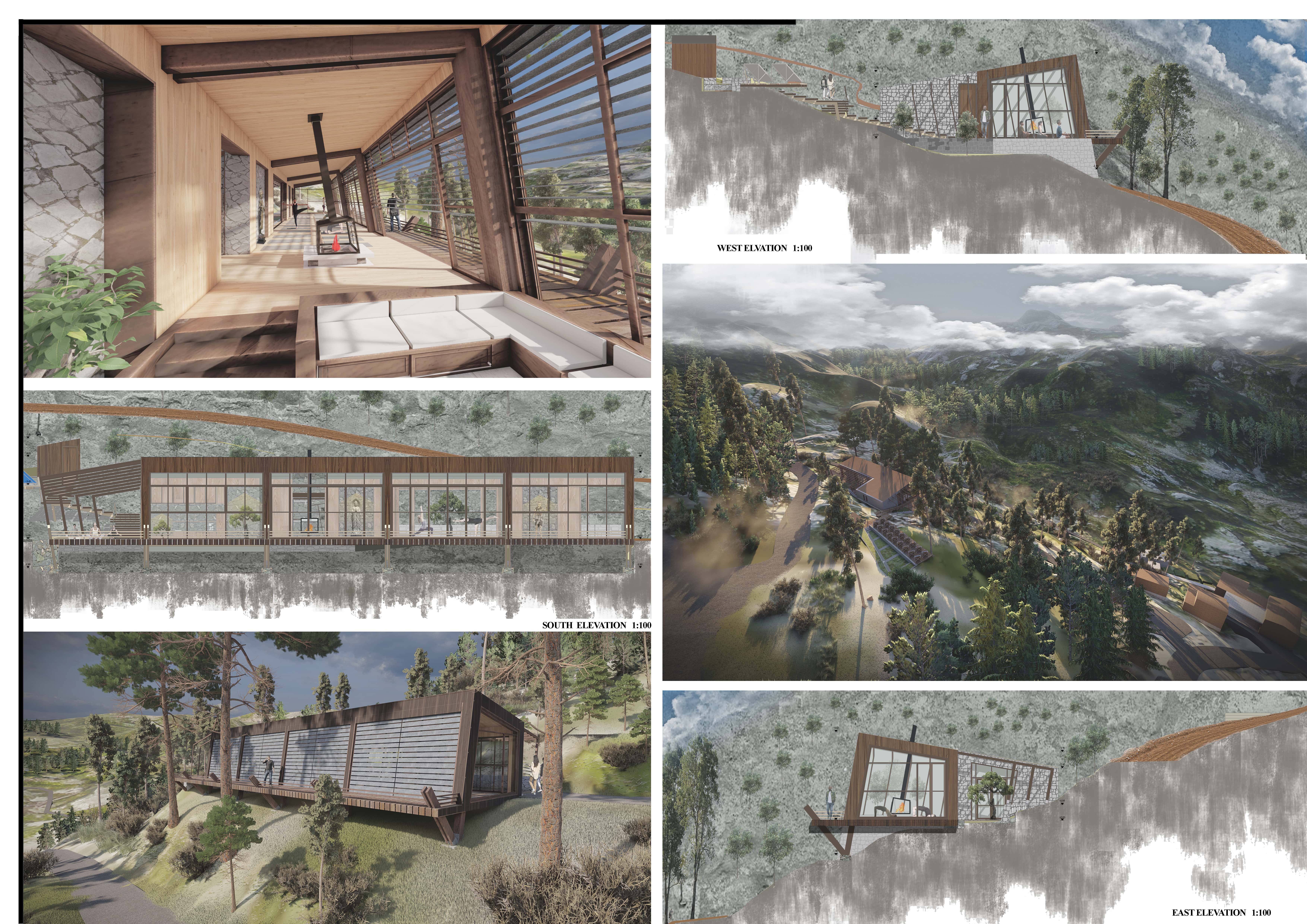5 key facts about this project
The Passive Yoga House is situated in a serene environment focused on wellness and sustainability. Designed for yoga practice and community activities, it emphasizes accessibility and interaction among users. The overall concept aims to blend the building with its natural surroundings while utilizing passive design principles to foster physical and mental health.
Material Selection
In this project, specific materials are chosen for their thermal performance and low environmental impact. Wood serves as a primary insulating material, helping maintain comfortable conditions with a thermal conductivity of 0.14 W/(MK). Stone contributes further to regulating temperature, using its thermal mass to absorb and release heat as needed. The use of thermal insulation, which has a conductivity of 0.038 W/(MK), strengthens the overall energy efficiency of the structure. Gypsum is also included in the design, enhancing the thermal management of the spaces.
Passive Design Strategies
Various passive design strategies are integral to how this building functions. The southern façade features a high window-to-wall ratio, allowing ample sunlight and warmth into the interior. This careful orientation maximizes natural light, reducing the need for artificial lighting. Natural ventilation is utilized to ensure air flows freely throughout the spaces without the need for mechanical systems. This approach supports better indoor air quality, which is essential for creating a healthy environment.
Water Management
Effective water management is a critical aspect of the design, addressing drainage needs and water flow efficiently. The incorporation of water tanks allows for rainwater collection, which decreases the reliance on external water sources. This feature aligns with the building's ecological goals, demonstrating a commitment to responsible resource management through thoughtful design.
Large glass panels on the façade connect the interior with the outdoor landscape. These openings provide expansive views, inviting nature inside while flooding the yoga studio with natural light. This design choice enhances the overall atmosphere, creating a bright and inviting space that encourages relaxation and mindfulness during practice.


